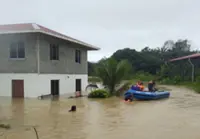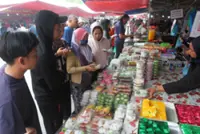KOTA KINABALU: Relocating the Kota Kinabalu International Airport (KKIA), the second busiest entry point into Malaysia, to Kimanis is vital to address its future congestion problems.
Datuk Dr Yusof Yacob (GRS-Sindumin) stated that the feasibility study report on the project has been submitted to the Sabah government and is awaiting approval to commence construction.
Follow us on our official WhatsApp channel for breaking news alerts and key updates!
Thank you for your report!





